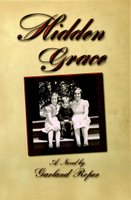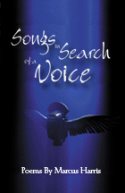 Author Garland Roper presents a story worthy of the “big screen” in his novel “Hidden Grace”.
Author Garland Roper presents a story worthy of the “big screen” in his novel “Hidden Grace”.Hidden Grace tells the story of an extraordinary psychotherapy patient, Grace Albright. On the surface, Grace’s problems are not much different than others who suffer from depression. She was subjected to several abusive situations as a child being moved from foster home to foster home and she’s struggled from the influence of this abuse for the majority of her life. What makes Grace so unique? Grace is 60 years old.
Obviously, there is nothing wrong with a 60 year-old seeking psychological assistance, however, her doctor seems to think so. In her doctor’s opinion, “Old people are hopeless…If they haven’t worked out their problems by the time they reach 50 or so, what are the chances?” Unfortunately, Grace is not alone in her need for psychological assistance.
Carl Wilder, PhD, Licensed Psychologist, the constant analyzer, has been gripped by feelings of mediocrity and failure. Though he celebrates a wonderful life filled with an understanding wife, a supporting son and professional success, Dr. Wilder feels that he is no longer effective in his practice and is terrified through each session he conducts, expecting one of his patients exposing him as a fraud. As his sessions with Grace progress, however, Dr. Wilder realizes that his mental condition is not much better than hers.
Hidden Grace paints a beautiful picture of the human spirit; how it deals with human suffering and the detailed process of how it overcomes it. Written by twenty-year, clinical psychologist Garland Roper, Hidden Grace places a human face upon the doctors that make their living helping patients remove their emotional burdens. It also exposes the fragile line psychologists walk as they balance objectivity and responsibility for those patients that seem unreachable.
Hidden Grace is an informative and entertaining journey into the human soul. It is a delicate package of humor, drama, mystery and redemption. I recommend it to everyone and especially to anyone who has sought answers as they’ve battled with human affliction.

